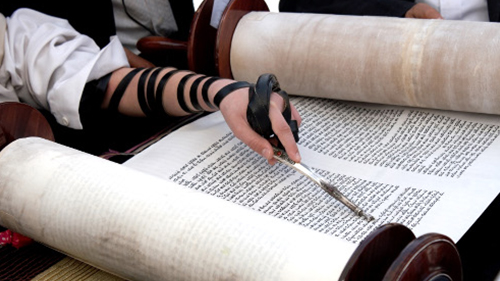by Rabbi Mark L. Winer, Ph.D., D.D., Senior Scholar, West London Synagogue of British Jews ; Chairman, International Interfaith Task Force of the WUPJ; and President, FAITH: the Foundation to Advance Interfaith Trust and Harmony. Spring is the season of hope. Nature restores its shining light and revives the glorious colors of its blossoms. Both Pesach […]
After I retired from a London pulpit six years ago, it felt as if I’d walked off a cliff.The new me wasn’t vitally participating in the lives of my congregants of all ages, nor was I bringing Muslim, Christian and Jewish religious communities together in friendship and peace, as the rabbi me had done for years. Instead I had become just another retired rabbi living in a condo development on a golf course in Florida. My meaningful life had been downgraded to the quintessential stereotype of a Jewish aging joke.
In mid-December 2013 our Synagogue in London, Alyth, had a uniquely World Union for Progressive Judaism experience. A substantial percentage of Alyth members are of South African origin, many having come to London in protest against apartheid and many others had been part of the anti-apartheid struggle in the 70s and 80s. So when Nelson Mandela died it was fitting that we held a memorial service at which all could gather. Through the World Union we are closely connected to Temple Israel in Cape Town (South Africa) who were also intending to hold a memorial service. So we did it together, with a real-time video and sound connection between the two Synagogues. We prayed together, sang together and heard each other’s stories and readings over 6000 miles.
by Rabbi Ron Kronish , Director of the Interreligious Coordinating Council in Israel Parashat K’doshim contains some of the most important moral values in the Torah, values which speak to us poignantly in today’s contemporary reality wherever Jews live and especially in Israel. In Leviticus 19 verses 17-18 we find the one of the most […]
Recent Issues By: Rabbi Neal Borovitz, Temple Avodat Shalom , River Edge, New Jersey, USA On Thursday May 5th, Jews around the world will stop and remember the six million Jews who perished during the ‘Kingdom of Night’* that we have come to call the Holocaust. While every day is a Yahrzeit for unimaginable numbers […]
Recent Issues In this week’s double Torah portion, Acharey Mot-K’doshim , which spans Leviticus chapter 16 through 20, we find an intriguing ‘sandwich’ of teachings. While Leviticus chapters 18 and 20 focus on a litany of sexual prohibitions, Leviticus 19, the chapter in between, outlines social justice legislation. What is even more intriguing about this […]
Recently a former student of mine who I am particularly fond of wrote me a letter asking my opinion about a discussion she had with other Jewish friends. The discussion was about conversion to Judaism and whether or not belief in God was mandatory for the candidate to be accepted by the Beit Din to become a Jew. Some felt that as long as the Jew by Choice followed the rules (mitzvot), led a Jewish life, and did not practice another religion, he/she could become Jewish. Others felt that faith and practice were inseparable and that belief in the God of the Jewish People was a pillar of being a Jew.
Recent Issues by Rabbi Mark Leonard Winer MBE, former senior rabbi at the West London Synagogue , and chair of the World Union International Interfaith Task Force We Jews have often become the scapegoat for whatever crisis arises. In the recent Ukrainian conflict, Vladimir Putin justified his policies toward the Ukraine with his claim that […]
“You shall be holy; for I the Lord your God am holy” (Leviticus 19:2)This is how Parashat Kedoshim begins, and it concludes echoing the same theme from the beginning: “You shall be holy to Me; for I the Lord am holy, and I have set you apart from other peoples, to be Mine” (Leviticus 20:26). In between these verses appear no less than fifty one commandments – counted in rapid succession and in order which is seemingly random.
These instructions to the Israelite nation while still in the dessert and while still a “society” in formation, established a clear cut norm which we as a Jewish community are commanded to follow: we are to keep away from the practices of the non-Jews with whom we live. We, the covenanted people to Adonai, have our own set of rules and practices which must guide our actions. We must stay away from the “others” and not copy what they do.

